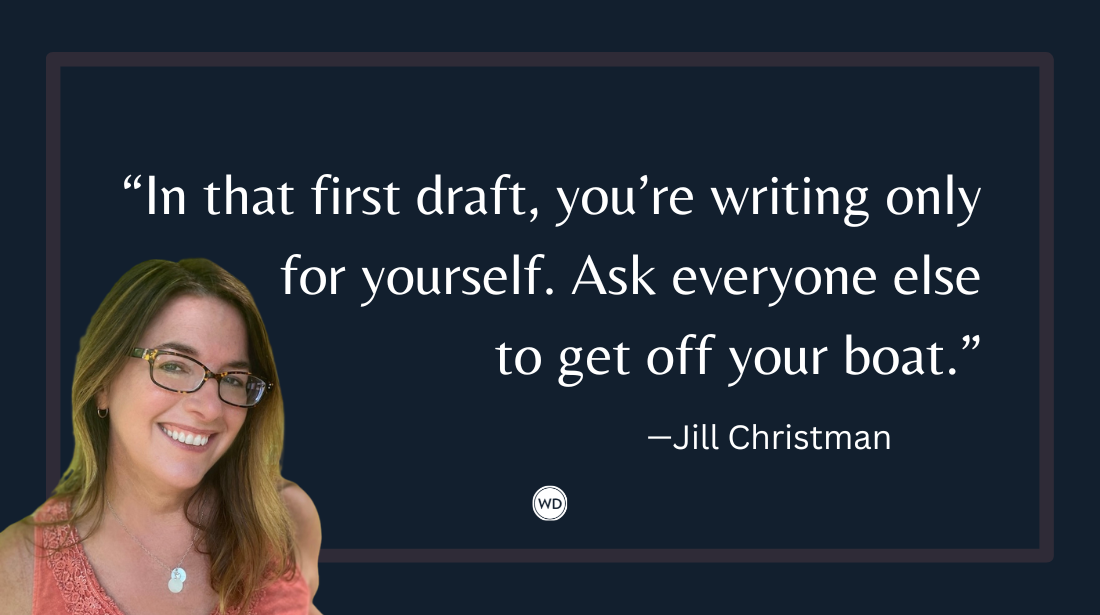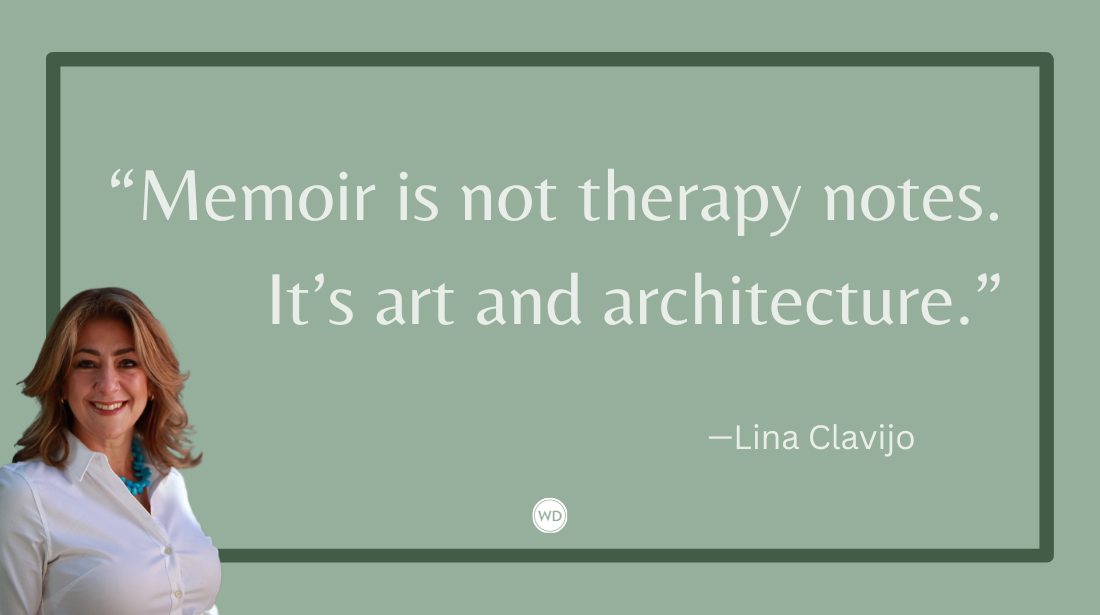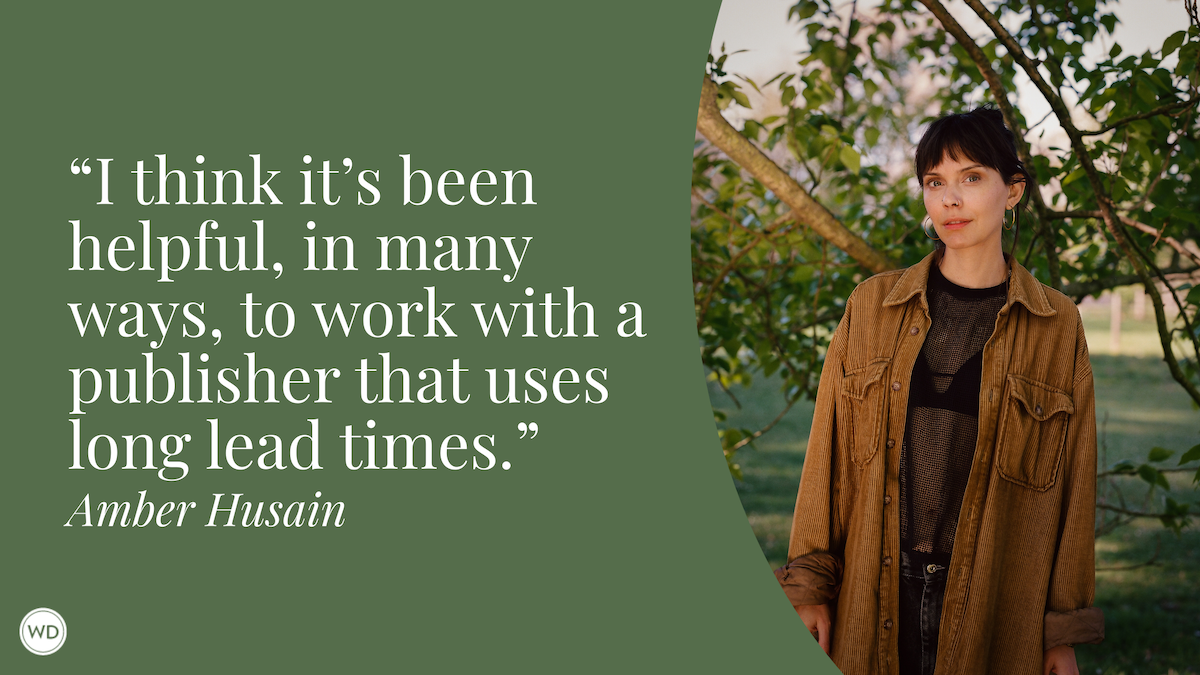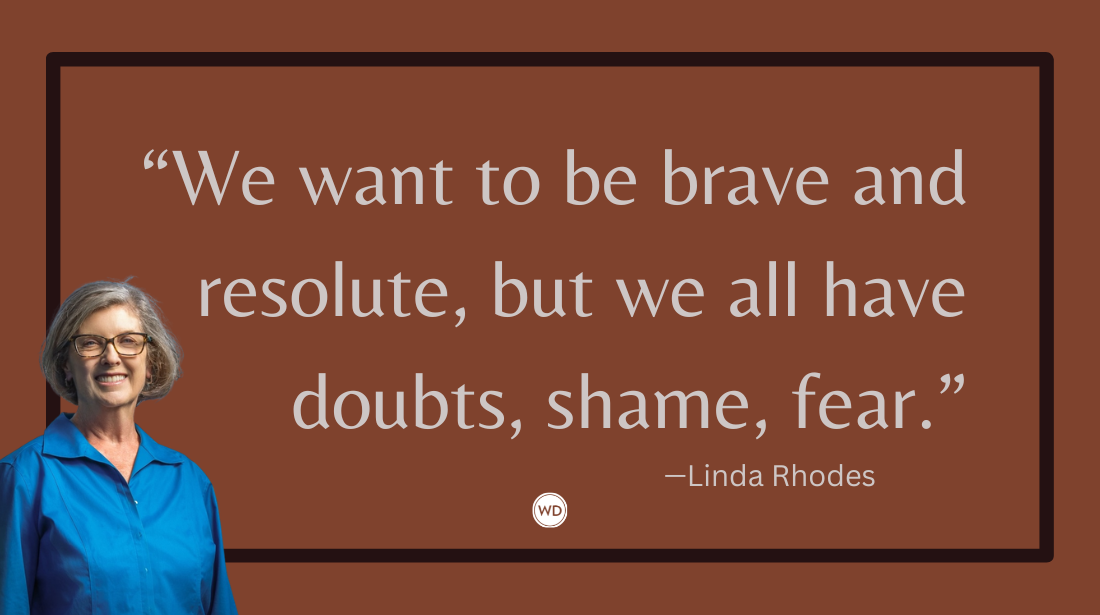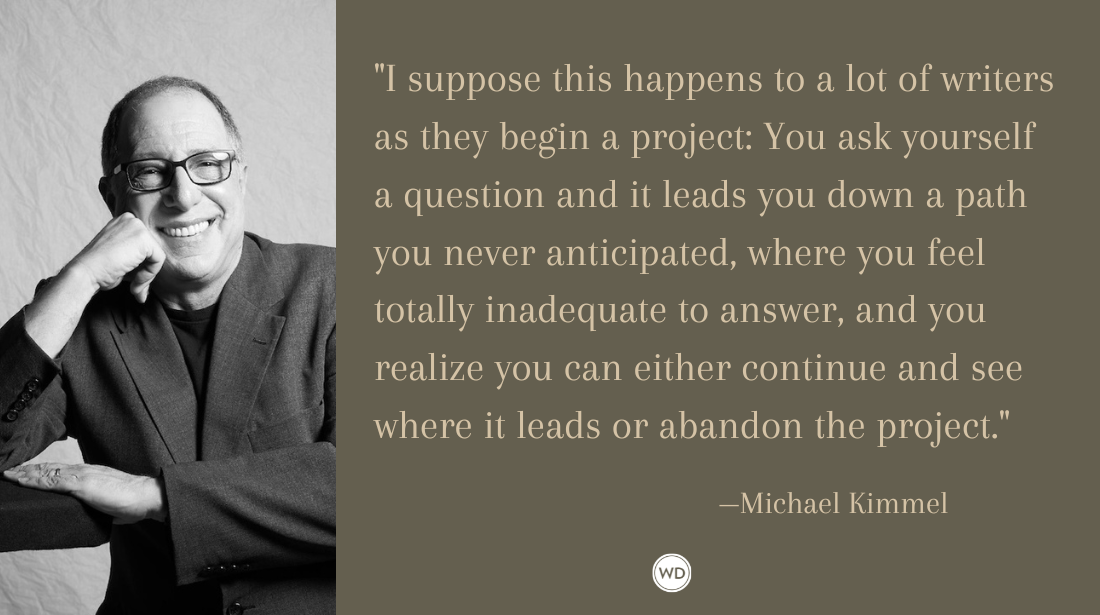On Finding, Losing, and Re-finding the Magic
Author Katy Grabel recalls finding, losing, and re-finding the magic of her past, as well as her struggle of when to reveal secrets.
It was a sunny day when my parents and I showed up at the big truck. Inside, crates holding their old magic show were stacked to the top. After years of storage, they had decided it was time to clear the boxes out. I had traveled in the illusion show on a months-long tour when I was 14, my first and last time in the show. Now in my 30s, my brief stint in show business belonged to distant memory, and I was fine with that.
When we started opening the crates holding the old props and equipment, I flashed back on being backstage—walking through its fluid darkness, the humming crowds through the curtain, and my mother in black sequins smelling of hair spray and fresh lipstick. Then we rolled out the big gold top hat; I had jumped out of it in the opening number. It was a large stylish prop of ribbed wire and shiny gold plaster. And there she was—my stage-struck 14-year-old self in her first high heels jumping out of that hat to a round of applause. I viscerally felt her excitement and dewy optimism. Everywhere she looked was the promise of magic.
A magic I had not found in my adult life. I didn’t like my job or where I lived, and my romantic relationships always fizzled out. I felt a little lost and sad, and yet I’d had this incredible adventure in the big magic show. To see and touch again all the old props—the musty foulards, foam birds, wire lady, battered wardrobe trunks—reminded me I had once experienced something grand. I wanted to understand that and write about it. I didn’t know why exactly. I just hoped it would lift me out of my malaise.
There is something intrinsically entrancing about a magic show and it doesn’t matter what side of the curtain one is on. A woman rises off the ground in inky blue light. All the backstage maneuvering to make this happen cannot diminish the feeling we are being lured into another way of seeing. Even backstage, amid all the secret compartments and angled mirrors, I believed something extraordinary could happen at any moment, and it wasn’t just my youthful exuberance.
We innately want to be released from a narrow, predictable world. As I began writing the book, I started to see what I had found, lost, and wanted to find again.
In writing The Magician’s Daughter – A Memoir, I had to embody the young girl I once was. I began reading my journals from the road. I had filled two 200-page notebooks with my musings, and apparently, I believed my father’s show was going to make me a famous magician’s assistant. But before the magic show, I’d had another dream. Stashed in my kid’s bedroom closet, were still my old music albums. They were reminders of my biggest dream of all—I wanted to be a famous rock-n-roll star. When the fancy illusion show came along, I traded my dream for my father’s dream even though all I had to do on stage was dress up, hand him props, and jump out of boxes. That’s when I realized this memoir would be about my journey back to myself within the light and motion of a magic show.
A magic show with plenty of mishaps and disappointments.
My father’s one cherished dream inspired this tour. He wanted to be a Las Vegas headliner and hoped that tour would be a springboard to a casino booking. Before I was born, he had manned his own traveling illusion show, and now he wanted to revive it in a big way.
In The Magician’s Daughter – A Memoir I share his excitement for a steady venue in neon-lit Las Vegas, and also his discouragement as difficulties mount on the road. Each time I’m so disillusioned. I assume my father will pack-up the show and sweep us all back home, yet each time he keeps on. As I wrote, I recalled his determination and great belief in himself, people, and life. It’s what sent him on that quest for glory in the first place. What a great example he was to me. At least when I was a kid.
My adult relationship with my father was strained. I had discounted all his best, most inspiring qualities and even the magic show had become tainted. That was one reason why I was in such a mess. I was determined to—do it on my own. Each time I sat in front of the computer screen, I had to be honest. I’d been handed magic on stage and off. It was time to journey back to myself again, and love and appreciate my father and his magic show once more.
I worked on the book for many years unable to complete it. Finally, I admitted I didn’t want my father to read it because I had revealed many of his tricks and illusions. Some of the illusions were so intertwined with the plot, I had no choice. Other times it was purely poetic ornamentation. I also revealed tricks to give my readers a true backstage view into the artificial innards of a magic show. But the main reason was this—in order for my young self to find real magic on the road, I had to first know what isn’t magic. And there is nothing very magical about a magician’s secrets—a clip on a boater hat, sliding doors, black thread, eyelids on a floating ball, an extra card in an inside pocket. So uninteresting and hush hush.
When I joined the magic show, I understood nothing about its inner workings. What better way to bring the reader into the story. I discover the secrets, wonders, curiosities of the magic show as the reader does. We both watch my father for the first time load his pockets behind his wardrobe trunk. We both see that little claw on his thumb—a thumb-tip with a razor blade duct-taped to the top. And we wonder, what act does he use that in?
I had told my father I was writing a book and offered no other details. Each time I thought of publication, I wondered: How would I break the news I had exposed his floating piano? And everything else? He was guarded and cautious regarding his illusion show. Secrets are the beating animal heart of every magic show. No way I’d get by unscathed.
Throughout all this, author and poet Mark Doty was on my mind. His memoir Firebird cost him his relationship with his father which he wrote about in the essay “Return to Sender.” This line always stayed with me: “I have told the truth, which may indeed set you free, but not without the price of betrayal.” Betrayal, as strong as the word is, feels right in this situation. I wasn’t a stranger but a daughter whom he had trusted as an assistant.
I shared the dilemma with a few writers. Some sympathized, others were dismissive, and one writer was angry. “Are you kidding me? You’re going to let him stop you. You have a right to tell your story.”
What I’ve learned is that only I know what to do. It’s a personal decision without a right or wrong. Despite the issues between my father and I, there was love. He’d been generous to me in many ways, and in exchange, knowing my memoir would upset and embarrass him, I decided, at the age of 40, not to publish it till he was dead. This wasn’t exactly going to be soon. At the time, he was a happy and active senior citizen galivanting around Las Vegas and Hollywood performing and attending professional magic functions with my mother. I waited 13 years. He died in 2015. And the memoir is publishing this year.
I cannot explain how the magic show changed me, without explaining how writing this book changed me. I went back to the beginning and saved myself. Magic. If I really look, it’s everywhere.
Check out Katy Grabel's The Magician's Daughter here:
(WD uses affiliate links)




